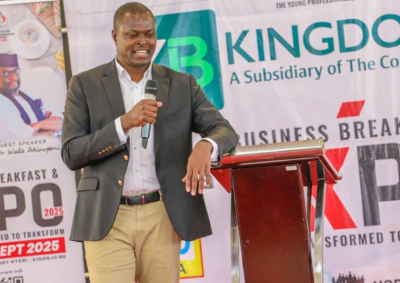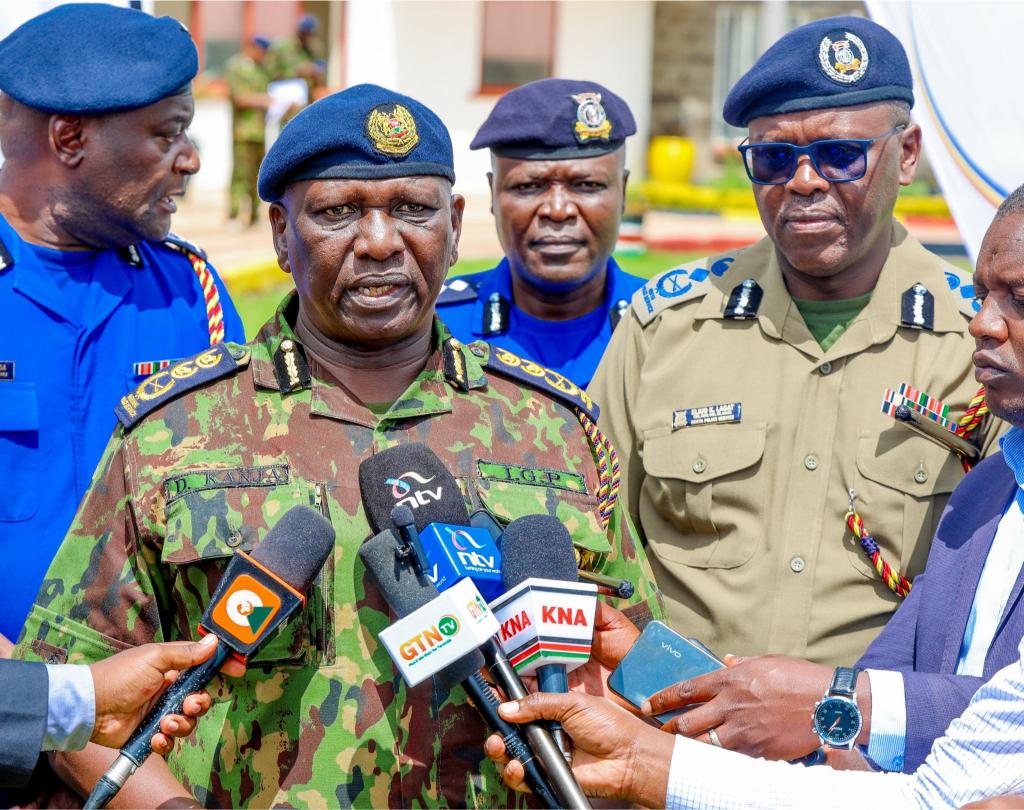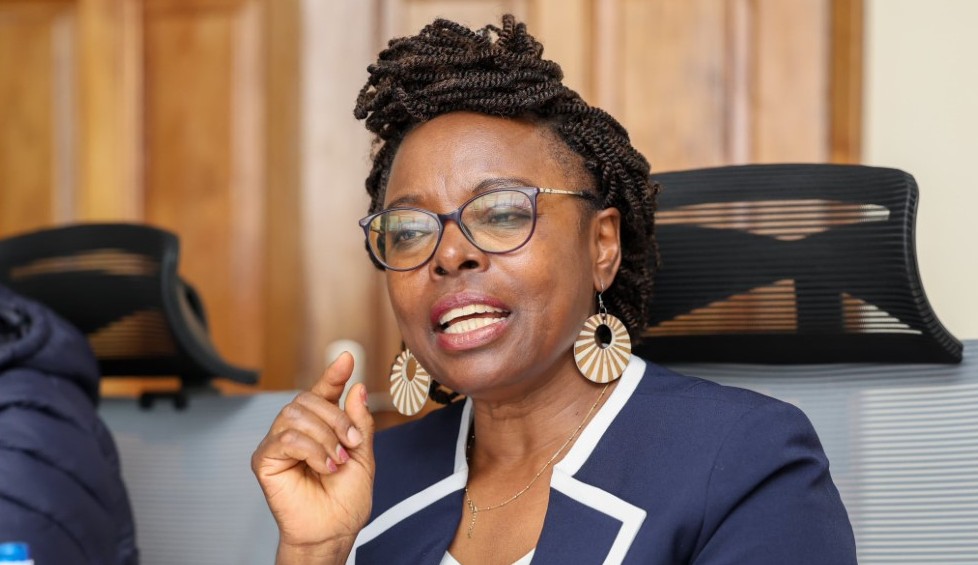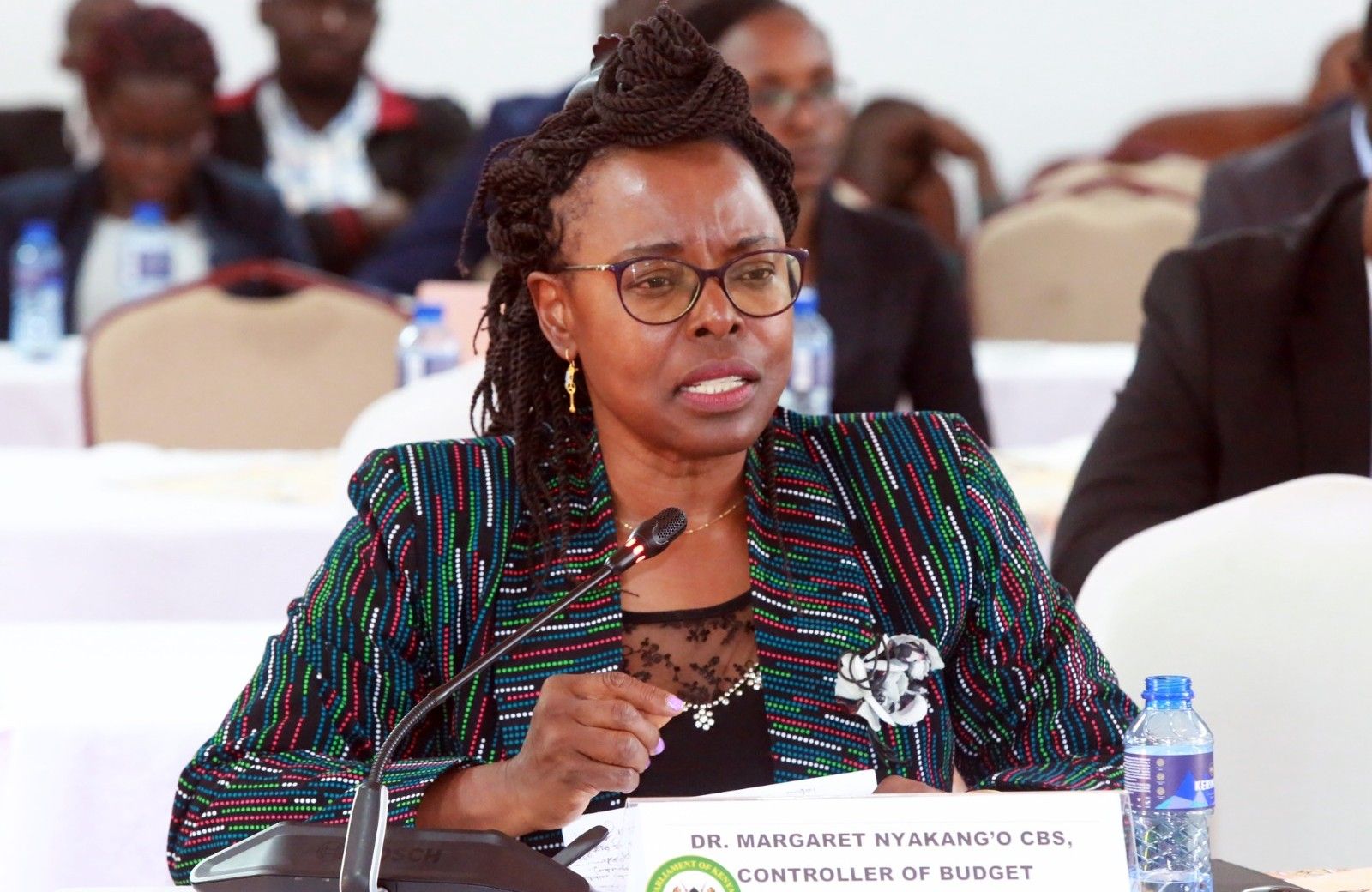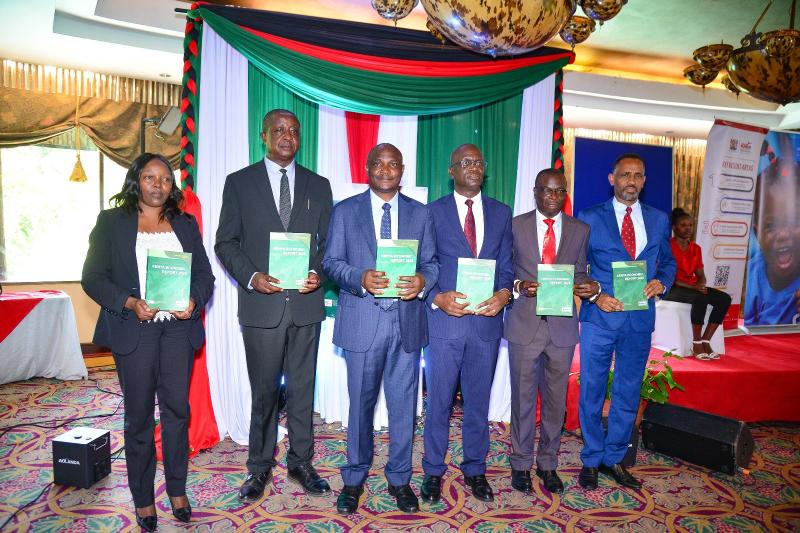US, Somalia step up cooperation against financial crimes and terrorist financing

The discussions, held in Mogadishu, focused on practical steps to secure Somalia’s financial system and to disrupt the flow of funds that sustain armed groups such as Al-Shabaab and ISIS.
The United States and Somalia have reaffirmed their commitment to work together in the fight against money laundering and the financing of terrorism, following a meeting between US Ambassador to Somalia Richard H. Riley and Somali Attorney General Mohamed Mohamud.
The discussions, held in Mogadishu, focused on practical steps to secure Somalia’s financial system and to disrupt the flow of funds that sustain armed groups such as Al-Shabaab and ISIS.
More To Read
- US offers Sh1.3 billion reward for information on ISIS-Somalia financial networks
- Senior Al-Shabaab leaders among 12 terrorists killed in joint Somalia operation
- Kenya added to EU's high-risk list for money laundering, terrorism financing deficiencies
- Puntland forces kill over 40 militants in major blow to ISIS
- Mogadishu mortar attacks leaves several injured across residential neighbourhoods
- Africom operation kills ISIS militants in latest airstrike in Puntland
Both sides underlined the urgency of tackling illicit financial networks that continue to fuel insecurity in Somalia and across the wider region. Ambassador Riley emphasised the shared responsibility, stating, “The United States and Somalia are working closely to cut off illicit financial flows and protect the integrity of Somalia’s economy.”
His remarks reflected Washington’s recognition that financial stability in Somalia is directly tied to broader regional security and international counterterrorism efforts.
The two officials agreed that one of the most effective ways to undermine extremist groups is to dismantle the channels through which they obtain and move funds. These include informal money transfer systems, illicit trade, and cross-border smuggling.
According to security analysts, Al-Shabaab has long relied on extortion, illegal taxation, and front companies to sustain its operations, while ISIS cells in Somalia continue to seek financial support through transnational networks.
Ambassador Riley reiterated that the United States remains committed to supporting Somalia’s ongoing reforms aimed at improving financial governance.
He noted that closer cooperation not only weakens the ability of terror groups to access funds but also contributes to restoring confidence among investors and partners in Somalia’s banking sector. International confidence is viewed as essential to Somalia’s long-term economic recovery.
"The United States and Somalia are working closely together to secure Somalia’s financial system and cut off criminal enterprises that support Al-Shabaab and ISIS terrorists," read part of a statement from the Embassy of US in Somalia.
Attorney General Mohamed Mohamud echoed this message, stressing the importance of building the capacity of Somali institutions to prevent financial crimes. Both officials pledged to expand training programmes and strengthen oversight bodies responsible for monitoring financial activity. Planned initiatives include technical assistance, legal reforms, and enhanced monitoring systems to detect suspicious transactions and prevent abuses of Somalia’s financial infrastructure.
In recent years, Somalia has taken steps to modernise its legal framework to meet international standards in combating financial crimes. The government has introduced Anti-Money Laundering and Counter-Financing of Terrorism (AML/CFT) provisions and, in 2023, passed a new Anti-Terrorism Law. These measures broaden definitions of terrorist acts and financing, while also increasing penalties to align with global norms.
The laws are intended to give Somali authorities stronger tools to prosecute cases and disrupt networks operating both domestically and abroad.
The United States has also maintained active involvement in countering terror finance through its Treasury Department, which has imposed sanctions on individuals and entities linked to al-Shabaab’s money laundering operations.
Sanctions have targeted networks that extend beyond Somalia’s borders, including operations in East Africa, the United Arab Emirates, and Cyprus. Such actions are part of broader US efforts to disrupt transnational funding pipelines that extremist groups depend on.
Alongside counterterrorism cooperation, the discussions also touched on Somalia’s broader financial reforms and economic recovery. The country is working toward debt relief under the Heavily Indebted Poor Countries (HIPC) initiative, which requires significant reforms in revenue management and fiscal policy. By meeting these benchmarks, Somalia aims to reduce its debt burden and create fiscal space to invest in development priorities such as infrastructure, education, and healthcare.
Somalia’s efforts are further supported by international and regional partnerships. Programmes such as the European Union’s ESCAY (East and Southern Africa and Yemen) anti-money laundering initiative have been instrumental in improving law enforcement cooperation, intelligence sharing, and regulatory oversight. These collaborations are intended to help Somalia strengthen resilience against financial crimes that often have cross-border dimensions.
Top Stories Today
